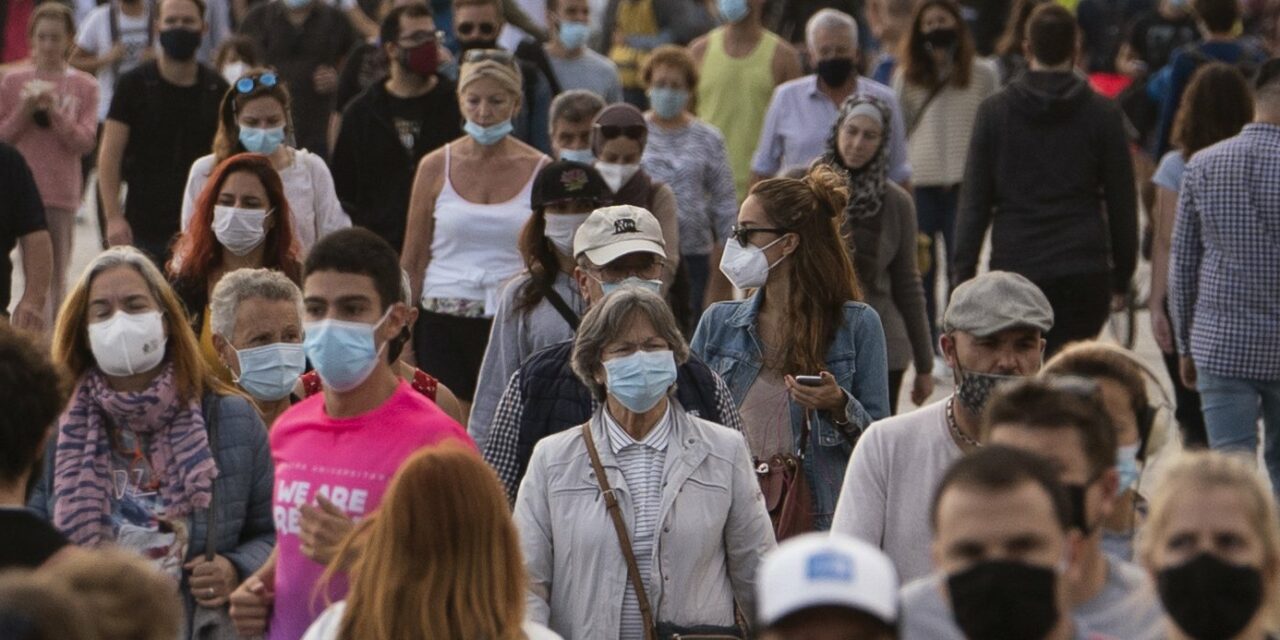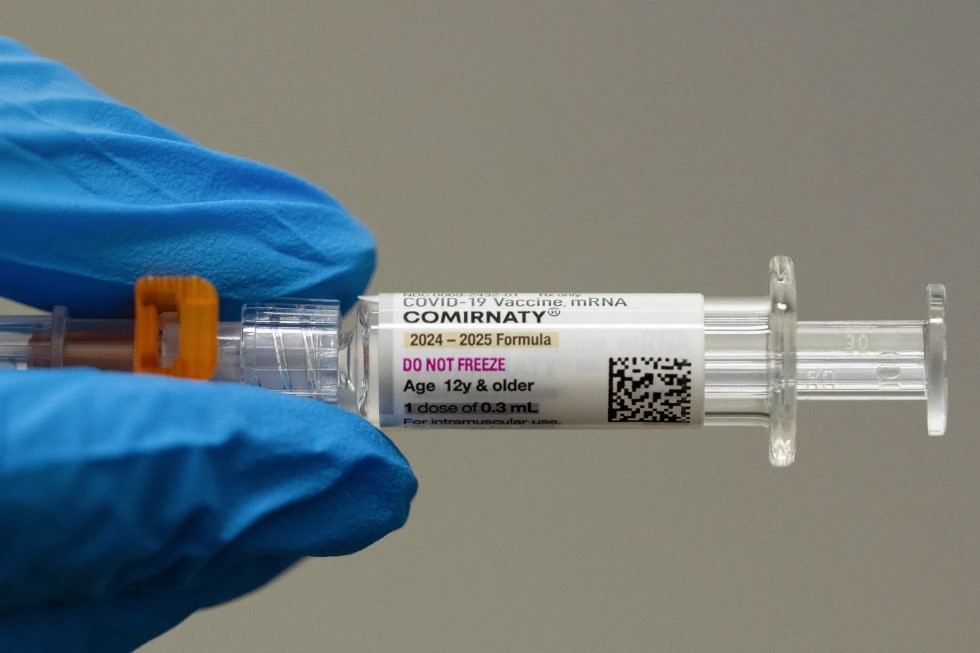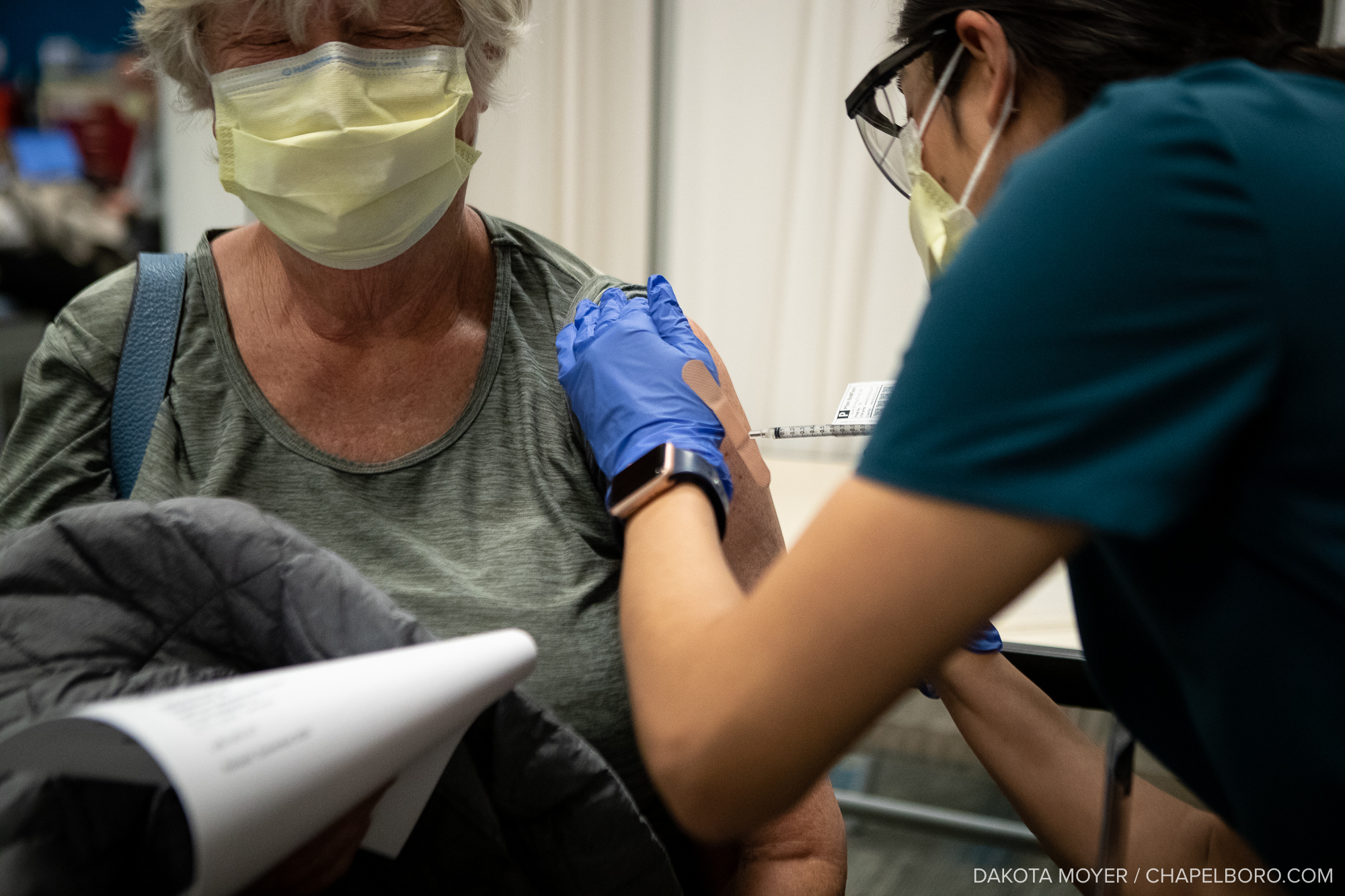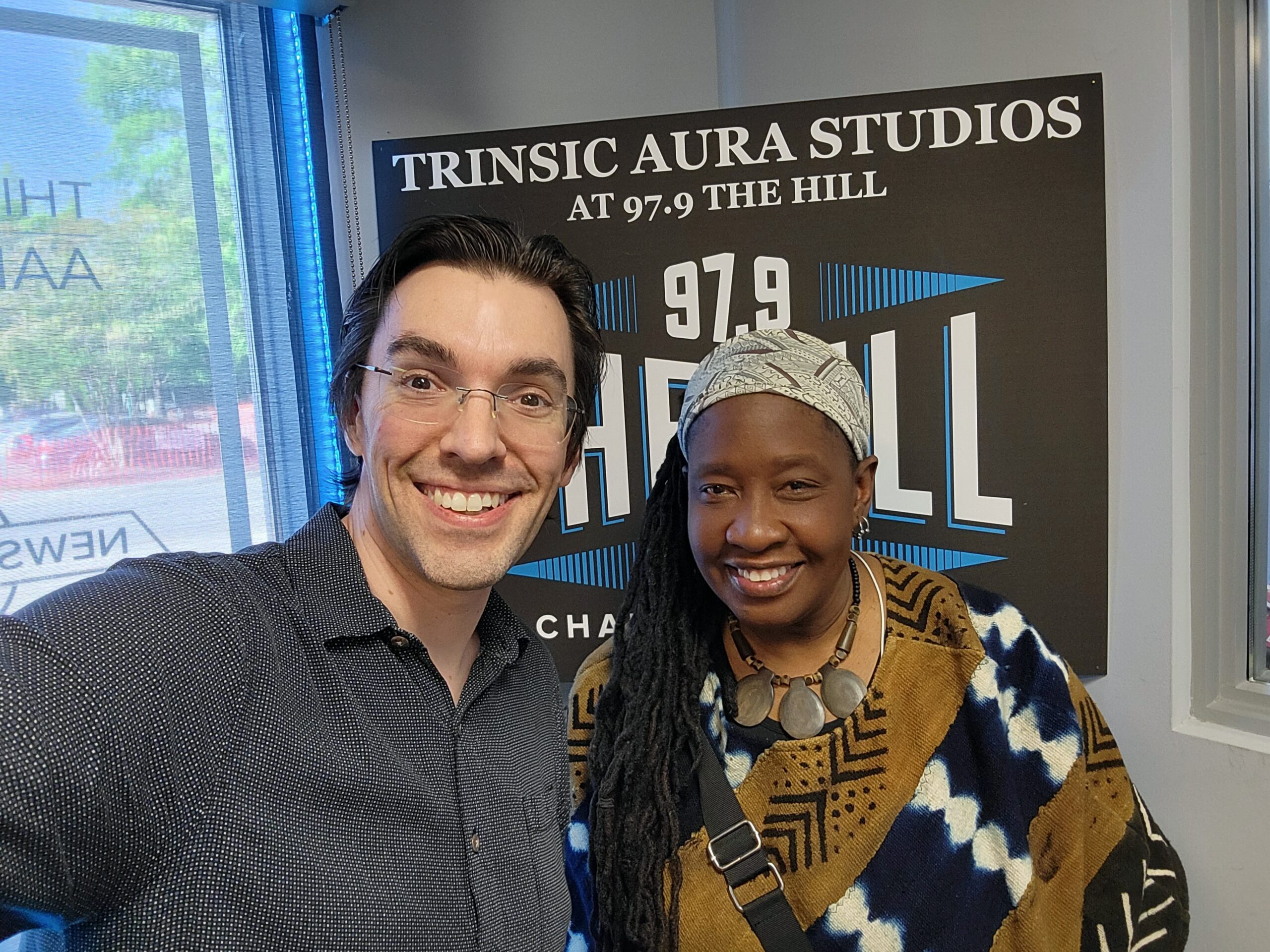As a new COVID-19 variant makes its way to the U.S., one UNC expert shares what is currently known about the mutated virus.
The omicron variant of SARS-CoV-2 is the latest strain of the coronavirus to be designated a “variant of concern” by the World Health Organization (WHO). Now, as the U.S. reported its first case of the new variant on Wednesday, scientists are concerned that omicron’s unusual combination of mutations may enable it to spread faster.
The omicron variant was identified on November 25 by scientists in South Africa. Preliminary tests suggest that it has been spreading rapidly there, but researchers have yet to determine if it truly is more contagious than other variants.
And while South African researchers alerted the WHO to omicron last week, it’s still unknown where or when the variant first emerged.
Dr. David Wohl is a professor of infectious diseases and principal investigator of the COVID-19 ACTIV-2 study. He said this variant most likely evolved from someone’s immune system putting pressure on the virus, forcing it to either adapt or die off.
“Somebody’s antibodies were fighting against this variant or its predecessor and this evolved to get around that immunity,” Wohl said. “It probably was not a vaccinated person, so that can be good and bad. So, what it means is that the immunity that’s afforded by vaccination is probably different than the immune response made by the individual that germinated this particular variant.”
According to the World Health Organization, it is not yet clear whether infection with omicron causes more severe disease compared to infections with other variants, including delta. Preliminary data suggests that there are increasing rates of hospitalization in South Africa, but Wohl said this may be due to increasing numbers of people becoming infected, rather than a result of specific infection with omicron.
“This really does punctuate why so many people were saying we need to vaccinate the world,” Wohl said. “Because this cultivated and this emerged probably because there was a lot more virus circulating in parts of the world where vaccination is just pretty sparse and that’s going to continue to happen.”
Only half of the population around the world has at least one dose of the COVID-19 vaccine. Wohl said that is a “failure on many levels.”
“We’re going to continue to chase our tails if we don’t have many more people across the planet vaccinated,” he said.
Preliminary evidence suggests there may be an increased risk of reinfection with omicron as compared to other variants of concern, however that information is still limited, according to the WHO.
Although, one of the main reasons there is increased concern surrounding the omicron variant is due to the sheer number of mutations from its ancestral strain.
Wohl said omicron carries more than 40 genetic mutations that in theory may make it both more contagious and less vulnerable to the body’s immune defenses than previous variants. More than 30 of the mutations are in the virus’ spike, a protein on its surface. Wohl said vaccines train the body’s immune defenses to target and attack these spike proteins.
“We’ve designed our vaccines or monoclonals to recognize a particular flavor of spike,” he said. “This one’s different. It’s morphed. Is there enough overlap between this variant and the previous variants that this won’t be a problem? Or is it dramatically different, different enough that it’s a miss? We just don’t see it and we’re back to where we were being vulnerable.”
These mutations may mean a change in the therapeutics delivered to COVID patients, as well as constant evaluation of the current COVID vaccine to judge its effectiveness against new strains. This could mean a new vaccine will be needed in the future to accommodate for virus mutations, much like the influenza shot is updated each year.
While there are no reported cases of omicron in North Carolina yet, Wohl said that is inevitable. Although, there is no certainty that this new variant will become the dominant strain – as 98 percent of COVID cases in the state currently stem from the delta variant. Wohl said this means vaccinations and booster shots are still just as important as ever.
“Let’s be clear – delta, already with its 10 mutations rather than 40, spread wildly,” Wohl said. “It’s caused a lot of disease and killed tens if not hundreds of thousands of people. So, we need to protect ourselves against what we have right here, right now, circulating in our communities.”
Lead photo via AP.
Chapelboro.com does not charge subscription fees. You can support local journalism and our mission to serve the community. Contribute today – every single dollar matters.











